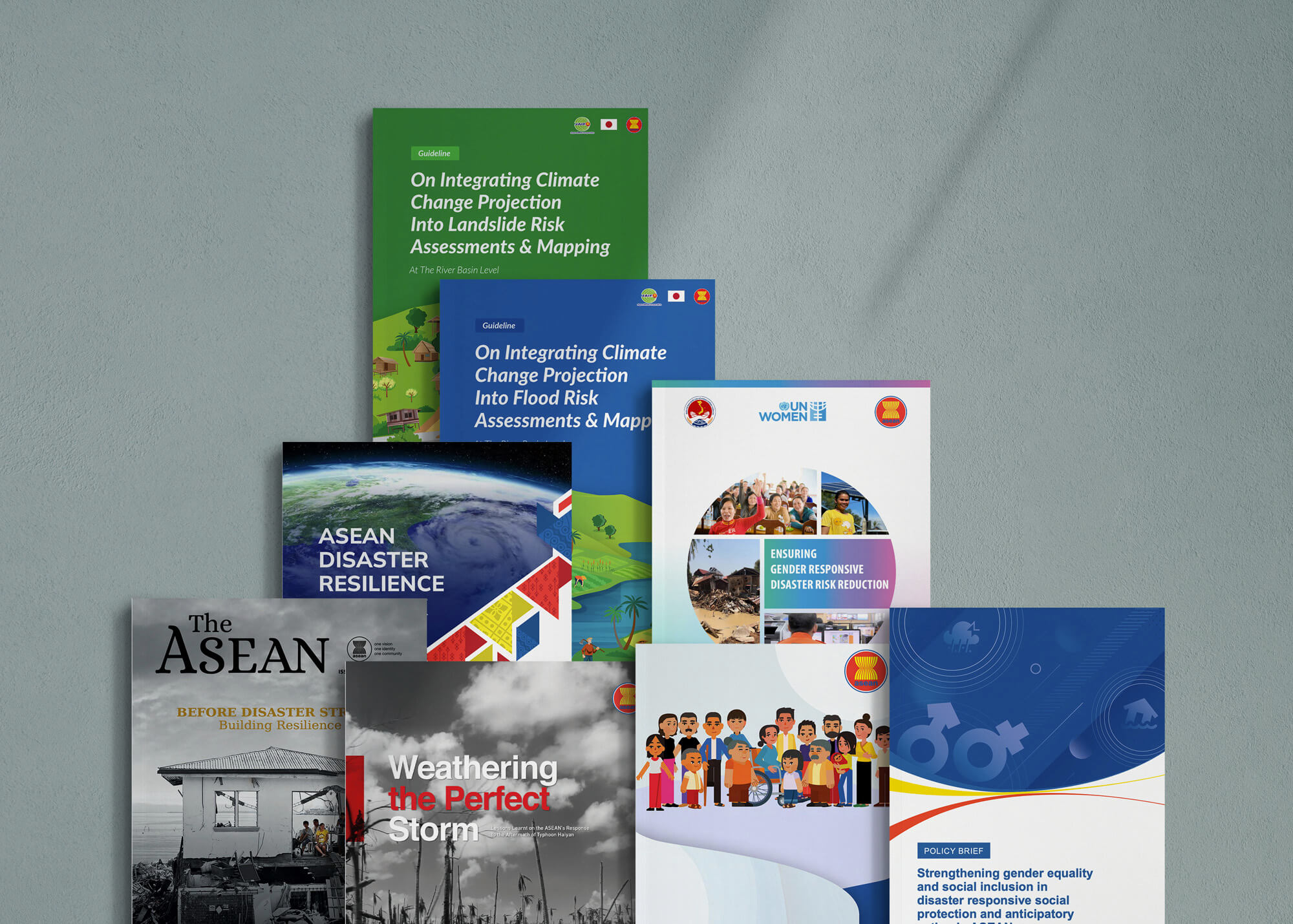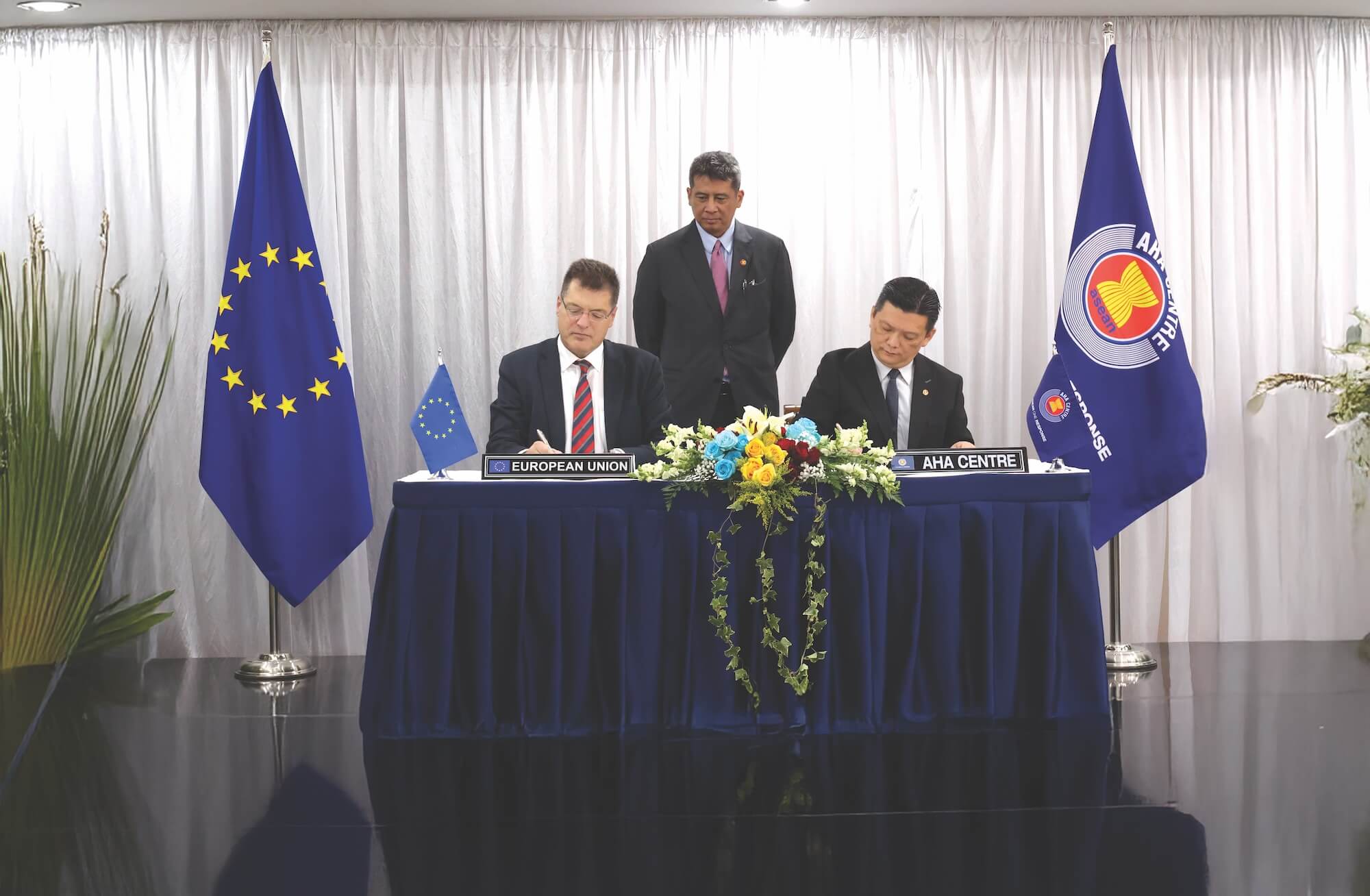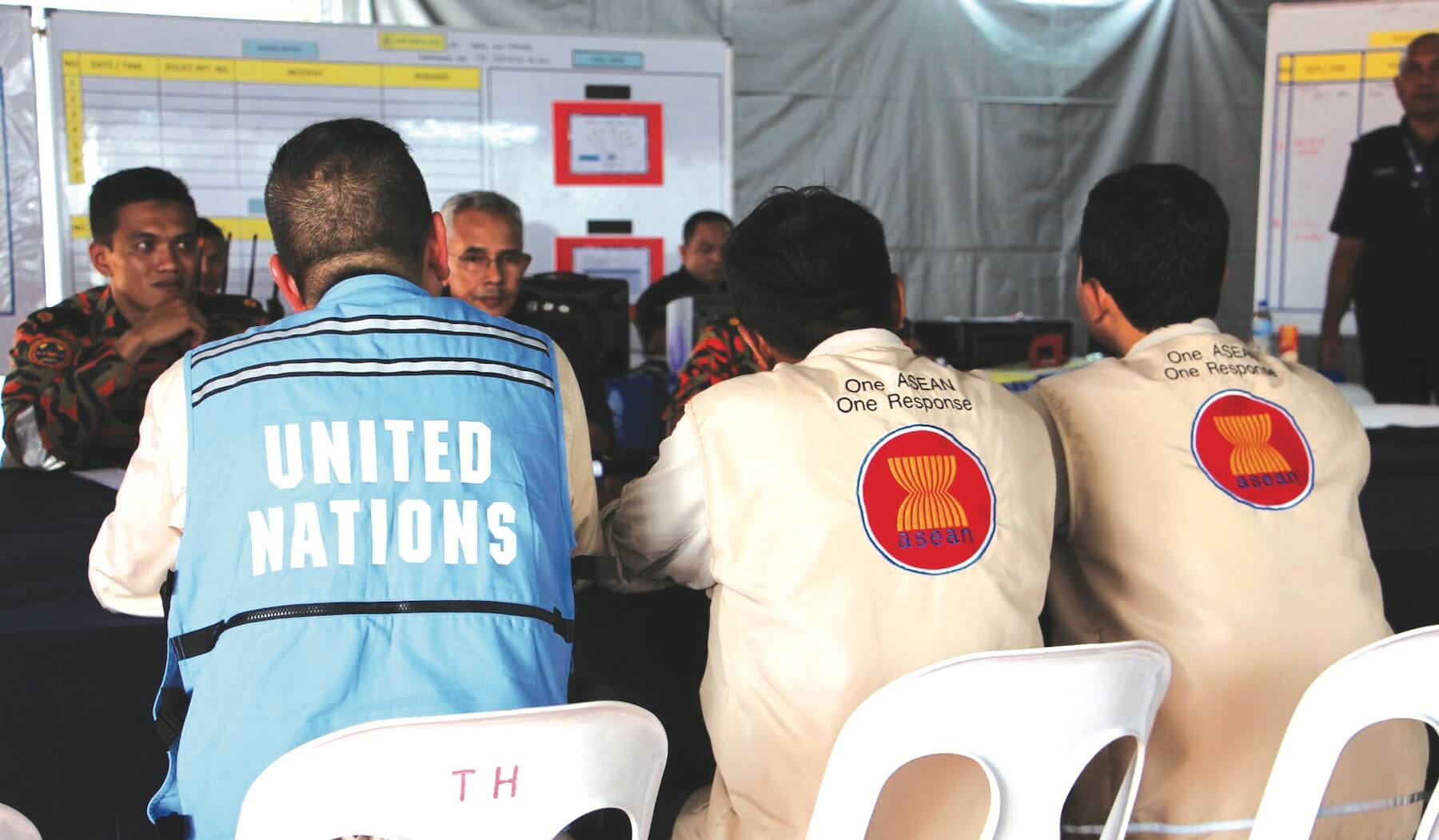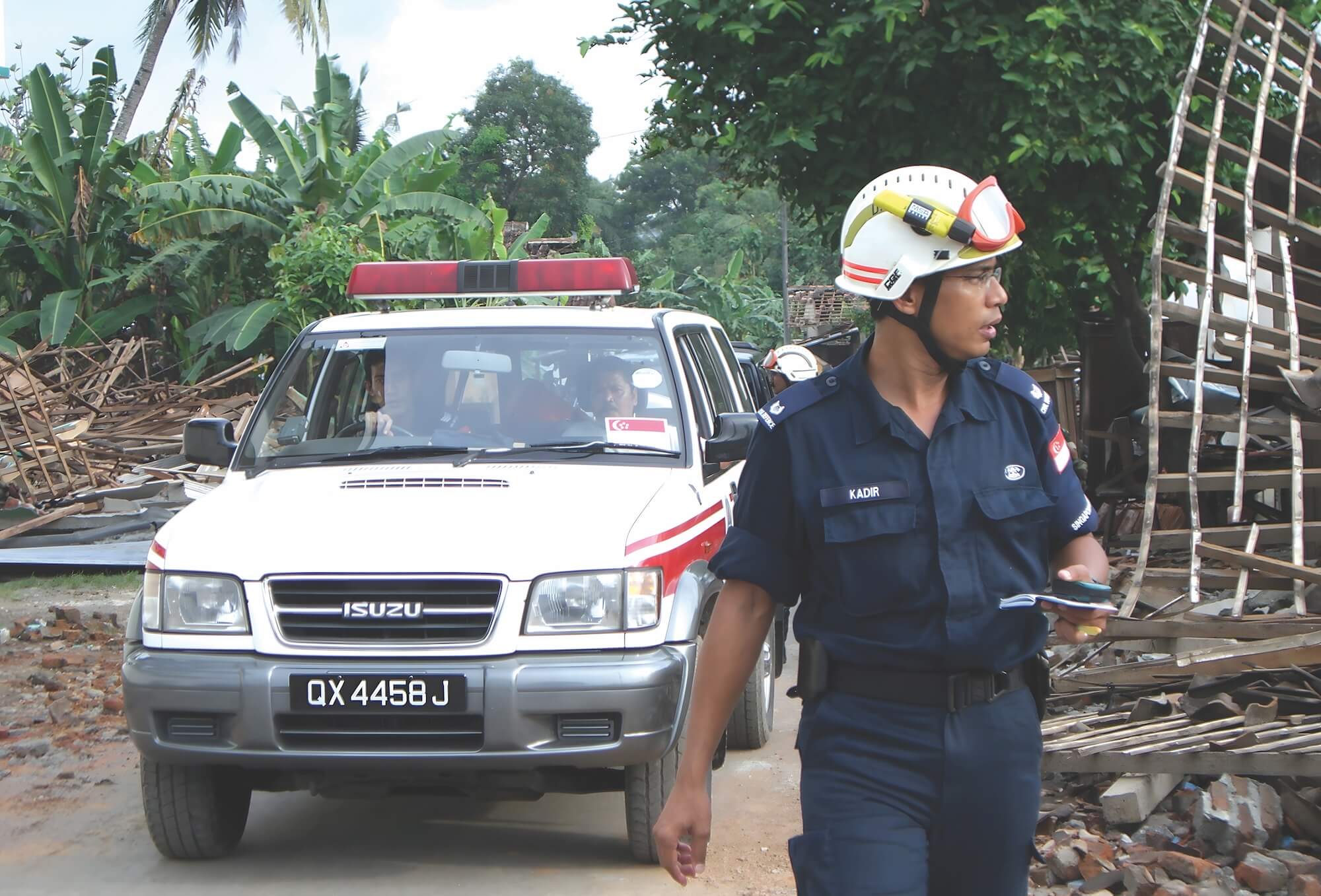



Weathering the Perfect Storm (2014)
This publication records the insights gained from ASEAN’s combined efforts in responding to Typhoon Haiyan, one of the most powerful typhoons to strike the region, with the Philippines experiencing the greatest impact. These insights were gathered through interviews with 25 key stakeholders and group discussions and workshops involving 60 respondents.
https://asean.org/wp-content/uploads/2021/08/ Weathering-the-Perfect- Storm.pdf
The ASEAN magazine (2020) “Before Disaster Strikes: Building Resilience”
The issue focuses on ASEAN mechanisms that are in place to prepare for and effectively respond to natural disasters that regularly ravage the region. It includes an interview with former Secretary- General of ASEAN, Dato Lim Jock Hoi, on the challenges of responding to disasters amidst the COVID-19 pandemic and ASEAN’s vision to become a global leader in disaster management. An article from UN Under-Secretary-General Armida Salsiah Alisjahbana highlights the threat of drought and UNESCAP’s partnership with ASEAN to address this slow-onset disaster. Conversations with individuals who have witnessed or have been affected by disasters are also included in the issue.
https://theaseanmagazine. asean.org/edition/before-disaster-strikes/
ASEAN Disaster Resilience Outlook (2021)
The publication provides essential insights for realising ASEAN’s resilience beyond 2025. It assesses progress, identifies emerging risks, and offers innovative solutions and recommendations for ASEAN Member States to become global leaders in disaster management. Through surveys and consultations, contributions were gathered from a diverse range of stakeholders, including ASEAN bodies, UN agencies, NGOs, academia, and the private sector.
https://asean.org/book/ asean-disaster-resilience-outlook-preparing-for-a-future-beyond-2025/
Ensuring Gender Responsive Disaster Risk Reduction– Good Practices from ASEAN
The book presents eight cases of good practices from ASEAN Member States in mitigating disaster risk and bolstering resilience. The case studies are organised according to the four priorities for action outlined in the Sendai Framework for Disaster Risk Reduction 2015- 2030: (i) understanding disaster risk); (ii) strengthening disaster risk governance to manage disaster risk; (iii) investing in disaster risk reduction for resilience; and (iv) enhancing disaster preparedness for effective response and to “build back better” in recovery, rehabilitation, and reconstruction.
Guideline on Integrating Climate Change Projection Into Flood Risk Assessment and Mapping/Guideline on Integrating Climate Change Projection Into Landslide Risk Assessments and Mapping (2021)
Climate change necessitates overhauling flood risk management systems in ASEAN to enhance disaster resilience. Effective decision-making in disaster risk reduction requires reliable knowledge of risk levels and factors contributing to hazards and damage, considering climate change’s potential impact. The ASEAN community acknowledges the rising frequency of extreme disasters. It addresses them through the ASEAN Agreement on Disaster Management and Emergency Response, emphasising risk assessment and awareness enhancement. Practical guidelines for assessing flood and landslide risks, incorporating climate change impacts at the river basin scale, have been developed to support this effort.
Training Module on Gender Equality and Social Inclusion Responsive Anticipatory Action (2023)
The module is designed to help humanitarian and disaster management professionals incorporate gender equality and social inclusion in their disaster risk reduction training and anticipatory action activities. The module contains five chapters and 12 topics encompassing the three building blocks of the ASEAN Framework on Anticipatory Action in Disaster Management: (i) risk information, forecast, and early warning systems; (ii) planning, operation, and delivery; and (iii) pre-arranged financing.
Strengthening Gender Equality and Social Inclusion in Disaster Responsive Social Protection and Anticipatory Action in ASEAN (2023)
The policy brief assesses the current situation, highlighting factors that facilitate or hinder gender equality and social inclusion in disaster response and anticipatory action in the region. Drawing on practical examples from the ASEAN Member States, including policy innovations and lessons, this policy brief pinpoints areas needing urgent attention and provides essential recommendations. The brief aims to help ASEAN Member States stakeholders implement both the ASEAN Guidelines on Disaster Responsive Social Protection for Resilience and the ASEAN Framework on Anticipatory Action in Disaster Management.








